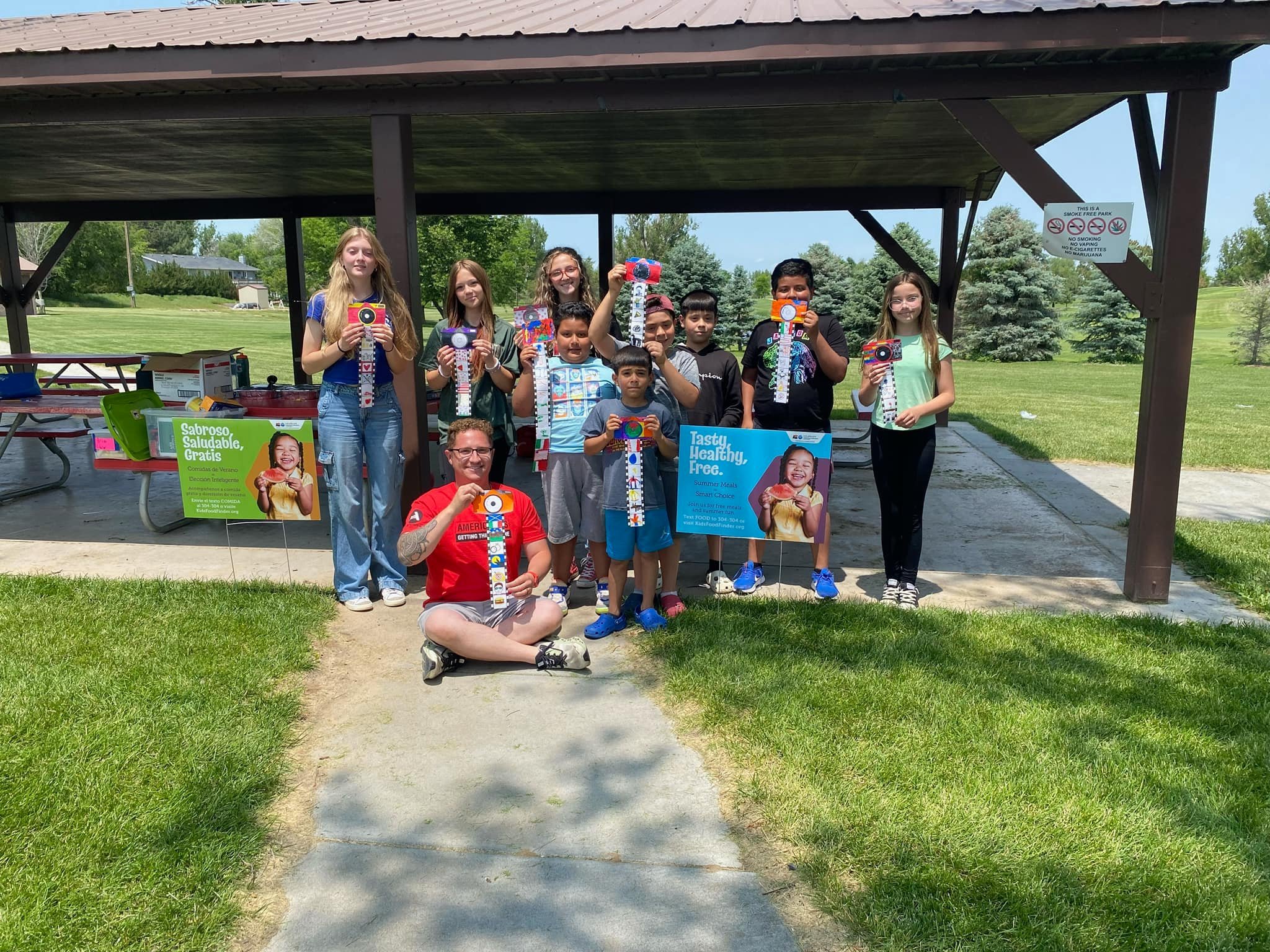Youth-powered nonprofit serves up food, community, and belonging in northeastern Colorado
Children flocked to a neighborhood playground in Fort Morgan last Friday afternoon. Young adults wearing bright blue T-shirts, denoting them as staff for Kids at Their Best, were already on-site, getting ready to serve lunch and connect with any kid or teen who came. And they showed up for fun and food.
Kids at Their Best launched in 2006 as a dance studio to build self-esteem and healthy habits for young girls in Morgan County. But some barriers to participation became apparent, including cost, transportation, and opportunities for all children regardless of age or gender. Kids at Their Best pivoted and began offering mobile enrichment programs to youth right in their own neighborhoods. They hosted one of Colorado’s first pilot sites for the no-cost summer meals program for kids and teens, formally known as the Summer Food Service Program.
Since then, Kids at Their Best has evolved to become a year-round, youth-powered leadership program. They offer access to resources, support, and encouragement for 6- to 24-year-olds so all the community’s youth can thrive and reach their full potential in life.
“It’s all about solving issues but also having fun,” shared Jodi Walker, founder and executive director for Kids at Their Best.
Photo by Kids at Their Best
One of their mission-driven programs, Summer Blast, ensures kids and teens can access nutritious meals while having fun in a safe and welcoming environment near where they live. This summer, they hosted 11 Summer Blast sites across Morgan County as well as in Yuma and Hugo. Kids at Their Best hopes to expand next year with more sites locally and in other rural communities on the northeastern plains of Colorado.
In addition to summer meals, Kids at Their Best also addresses their community’s challenges to accessing fresh, healthy, and culturally relevant foods with a mobile food pantry. An agricultural community with nearly 29,500 residents, Morgan County has become one of the most diverse counties in the state with 26 different languages spoken. That also means the food needs of families and individuals can vary greatly – and some may only consume foods that observe halal (food allowed under Islamic dietary guidelines as defined in the Quran).
Photo by Kids at Their Best
The mobile food pantry visits different apartment complexes, mobile home parks, and other housing communities, providing access to fresh produce and other culturally relevant foods. They’re hosted around shift work schedules at the nearby meatpacking and other food production plants, so more people have the opportunity to participate when they’re available. And there’s no identification or income verification to use the services. By working with and for community, they have served 2,000 people already.
“We’re meeting people where they are and bringing the resources to meet their needs directly to them,” said Jodi. “We’re all about community, belonging, and cultural respect.”



